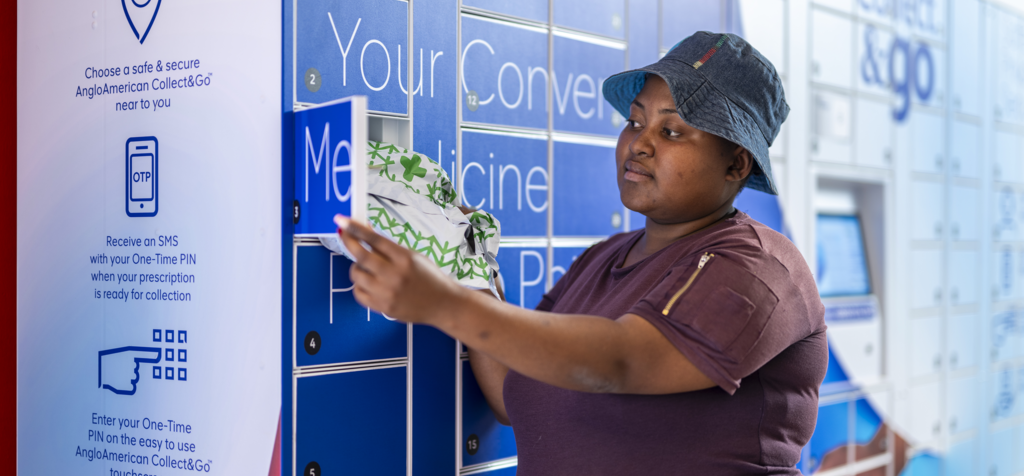World Health Day is a global health awareness day celebrated every year on 7 April, under the sponsorship of the World Health Organisation, as well as the related national health organisations. This day is dedicated to raising awareness about critical health issues facing the world and mobilising efforts to address them.
This year’s World Health Day will kick off a year-long campaign on women’s maternal health and their newborns.
The campaign, with the theme of “Healthy beginnings, hopeful futures”, urges governments and the health community to ramp up efforts to end preventable maternal and newborn deaths, and to prioritise women’s longer-term health and wellbeing.
Alexandra Plowright, Head: Community Health, said: “The focus of this year's World Health Day, 'Healthy beginnings, hopeful futures,' deeply resonates with Anglo American's commitment to fostering healthier communities. We are proud to support efforts aimed at reducing maternal and newborn deaths and improving overall health equity. Through our ongoing partnerships and health initiatives, such as the collaboration with Right to Care in South Africa, we strive to address systemic healthcare challenges and enhance the well-being of both our workforce and the surrounding communities.
"This global campaign serves as a powerful reminder of the shared responsibility to advance maternal and newborn health outcomes. By uniting as a global community, we can make significant strides toward ensuring every mother and baby not only survives but thrives, paving the way for brighter, healthier futures.”
Listening to women and supporting families
Women and families everywhere need high quality care that supports them physically and emotionally, before, during and after birth.Health systems must evolve to manage the many health issues that impact maternal and newborn health. These not only include direct obstetric complications but also women’s mental health conditions, noncommunicable diseases and family planning needs.
This year’s campaign goals include:
- To raise awareness on the gaps in maternal and newborn survival and the need to prioritise women’s long-term health and wellbeing.
- To advocate for effective investments that improve the holistic health of women and babies.
- To encourage collective action to support all parents as well as health professionals who provide their critical health and wellbeing care.
- To provide useful health information relating to pregnancy, childbirth, and the postnatal period.
Head of Health for Anglo American, Dr Robina McCann, said:
“At Anglo American, we are committed to supporting local community health, owing to its well recognised impact on both our workforce and their families. By investing in our operating areas local health capabilities and preventative healthcare measures, we help secure a more stable and supportive operational environment and foster positive relationships with our local stakeholders.
"We support the goals of this year’s World Health Day campaign and see strong alignment with our health and wellness policies as well as our proactive social performance and other sustainability programs around our operations."
“World Health Day 2025 is a call to action for everyone, everywhere. It's an opportunity to unify efforts to improve health outcomes and achieve health equity across the globe. By participating in World Health Day, we contribute to a global movement towards a healthier, more equitable world for future generations.”

Case study: Strengthening health systems
South Africa continues to suffer from funding and capacity constraints in the field of healthcare, especially in the poorer rural areas of the country – a situation exacerbated by the Covid-19 pandemic, which severely strained healthcare systems.
The state cannot on its own meet all the demands placed upon it, so the private sector must play its part in helping to fix the gap in healthcare between demand and delivery.
Under the Thriving Communities sustainability pillar of our Sustainable Mining Plan, we have a series of goals to support thriving communities that we are aiming to achieve by 2030 – including in healthcare.
Prominent among these is our collaboration with Right to Care – a leading non-profit healthcare organisation that provides prevention, care and treatment for HIV and related diseases – and the provincial health departments in Limpopo and the Northern Cape to improve healthcare quality in under-served areas.
Leveraging the country’s Ideal Health Facility Realisation and Maintenance (IHFRM) framework, the partnership has been implementing targeted health system strengthening (HSS) interventions.
These efforts focus on leadership, governance and continuous evaluation, addressing persistent challenges in achieving and sustaining IHFRM standards across facilities.
Interventions and methodology
Beginning in April 2023, the HSS initiative delivered comprehensive technical assistance to primary healthcare facilities in Limpopo and the Northern Cape.
The technical support centred on building leadership capacity at district and facility levels, fostering accountability, and establishing a culture of continuous quality improvement through realtime performance tracking.
By aligning facility operations with Ideal Clinic standards, the programme empowered healthcare teams to address proactively service-delivery gaps and enhance facility compliance.
Early impact analysis
The intervention has shown substantial impact, particularly in Limpopo. The 2024/25 assessment indicated that 84% of facilities met IHFRM standards, a substantial improvement from the 28% compliance rate recorded at the beginning of 2023.
Among facilities that achieved ideal status in 2023, a high maintenance rate of 95% was observed, while 149 facilities improved from non-compliance to ideal status.
These results underscore the effectiveness of targeted governance and evaluation tools, enabling healthcare managers to promptly address quality gaps and establish sustainable improvements.
Implementation in the Northern Cape began towards the end of 2023, slightly delayed compared with Limpopo, yet the latest assessments reveal similar progress.
Facilities there have demonstrated an upward trend in compliance, driven by enhanced local governance and continuous evaluation mechanisms.
The consistent performance improvements in both provinces illustrate the significant benefits of adopting a structured approach to health system strengthening.
Through the successful implementation of this programme, more than 1.1 million people in our area of influence now have access to quality care from the clinics.
This partnership between Anglo American, Right to Care, and provincial health departments highlights the potential of strategic partnerships that align with national frameworks and priorities.
This model provides a replicable framework for health system strengthening, potentially inspiring broader efforts across South Africa and reflecting Anglo American’s commitment to positive social impact and sustainable health outcomes in the communities where it operates.




